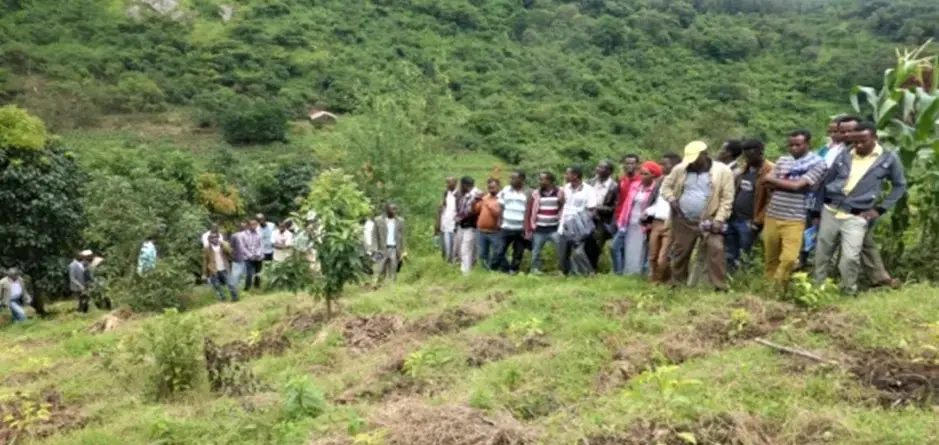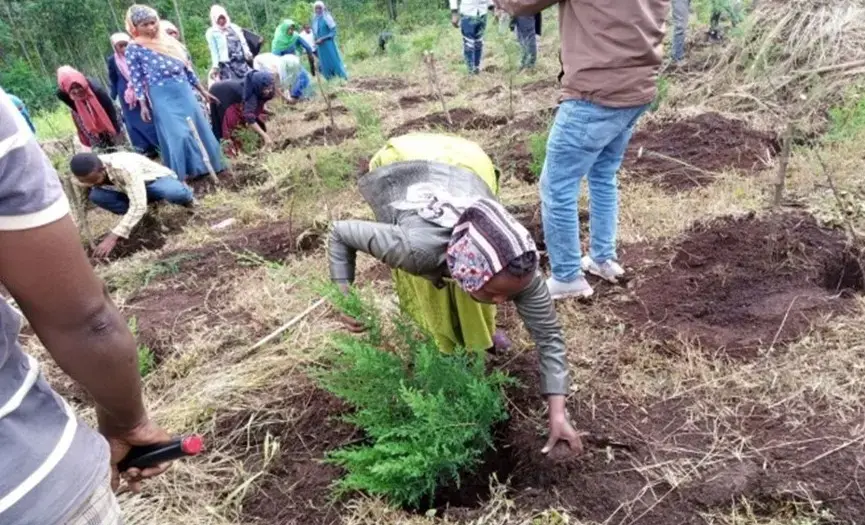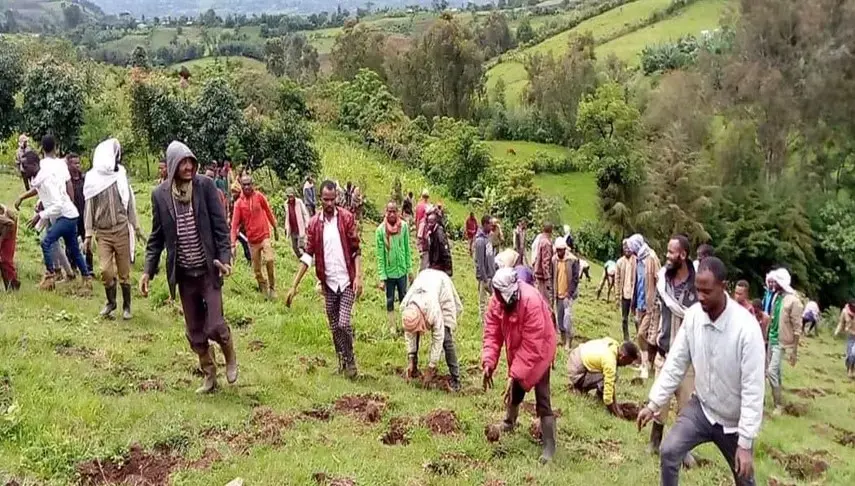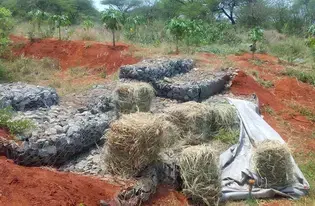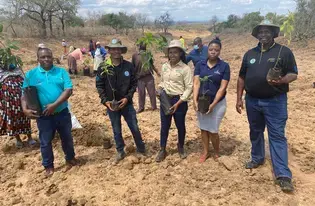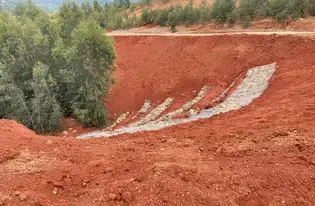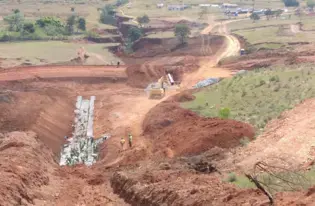The Environment and Coffee Forest Forum is leading the charge for conservation in Ethiopia by passing the baton of sustainability to the next generation.
Ethiopia’s land has suffered from severe degradation and erosion in recent decades due to damaging farming practices. According to assessments, more than 85% of the country's land is in various states of deterioration.
That is why the Environment and Coffee Forest Forum has been working to reverse environmental deterioration and create a future in which people coexist peacefully with nature. Established in 2004, ECFF is an Ethiopian not-for-profit organization that conducts research and development projects in the Yayu Coffee Forest Biosphere Reserve and other forested landscapes across the country. Their work protects biodiversity and encourages the equitable and sustainable use of renewable natural resources.
ECFF conducts restoration efforts through natural regeneration, enrichment planting, and coffee agroforestry.
Since it was founded, the organization has made significant progress in restoring 3,050 hectares of degraded coffee forests through planting 800,000 new coffee and fruit trees. This effort has been supported by funding from key partners, including the Kew Royal Botanic Gardens, Nature Conservation Research Centre, and Oxford University. Building on this effort, TerraFund for AFR100, an initiative of World Resources Institute, One Tree Planted, and Realize Impact that finances Africa's top restoration enterprises and projects, provided the organization a grant. Now, ECFF is training youth groups to run green enterprises and cultivate seedlings, creating diverse job opportunities.
By researching the impacts of climate change and land use change and developing solutions that promote climate resilienceECFF is leading the way in promoting sustainable and eco-friendly agricultural practices in Ethiopia.
It has also forged strong partnerships with local universities, especially as it prepares its sites for restoration and constructs its nurseries By inviting students to participate in these activities, the ECFF is providing invaluable hands-on experience while also promoting a culture of environmental stewardship within the next generation of leaders.
“We team up with students from our partner universities to plant trees at different stages. This not only fights climate change, but also helps the community make money by growing crops among the trees. So, we dig in to grow a better future together,” says Tadesse Gole, executive director of ECFF.
In addition to the environmental benefits, the local community has also experienced significant economic gains. This is largely due to the expansion of farmers' cooperatives that have been strengthened and now include over 30 coffee producers and 15 honey producers. By providing income opportunities to cooperative members, ECFFhas helped to improve the economic well-being of many in the region.
“As part of the country’s Green Legacy Initiative led by the Prime Minister, our aim is to plant seedlings and restore thousands of hectares in different regions,” adds Tadesse.
ECFF has also made significant contributions to the agricultural sector by introducing new vegetable varieties that have been well received by local communities. These varieties have been approved by the national research system for widespread use in agricultural development extension programs, highlighting their value in promoting sustainable and productive farming practices.
The Environment and Coffee Forest Forum is testament that sustainable farming contributes to landscape restoration and transforms community livelihoods.
